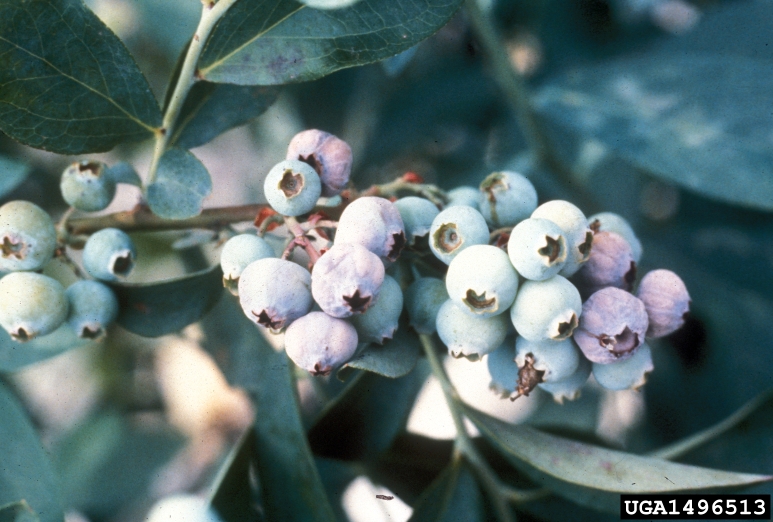
South Georgia blueberry producers need to be wary of mummy berry disease. University of Georgia Extension advises growers to initiate sprays for the disease to protect plants that are vulnerable.
“Growers usually know around green tip, when new leaves are developing and then through bloom, they need to be putting out effective fungicides for control of mummy berry,” said Jonathan Oliver, University of Georgia (UGA) assistant professor and small fruits pathologist. He added that while the disease typically impacts rabbiteye blueberries, it may be a problem this year for southern highbush varieties as well.
“On southern highbush blueberries, those berries tend to develop a little earlier than rabbiteye, and usually, the mummy berry life cycle doesn’t quite match up right with the southern highbush life cycle. Usually our southern highbush (varieties) escape,” Oliver said. “But our blueberry development right now is several weeks behind where it’s been the last couple of years, and so a lot of our southern highbush happen to fall right in the window where perhaps they also could get infected with mummy berry this year. While it’s usually not a problem for southern highbush, this year maybe a year where it could be.”
Symptoms
“It’s a fungus species that first will infect the young leaves and then it will spread to the blooms. After it infects the blooms, any blooms that get infected that produce berries, those berries will be filled with fungus tissue,” Oliver said. “A fungus will grow in the berry and suck all of the moisture out. It basically ends up with a mummified berry. That’s where the disease name comes from.”
Additional information on fungicides that are available to control mummy berry can be found in the Southeast Regional Blueberry Integrated Management Guide at www.smallfruits.org.
“Growers of southern highbush don’t always spray, I mean they spray fungicides that probably are going to have efficacy against mummy berry but they don’t spray, specifically targeting mummy berry, usually because they don’t have to. But this year may be a year where they need to,” Oliver said.









